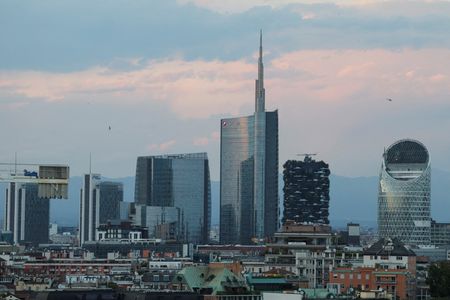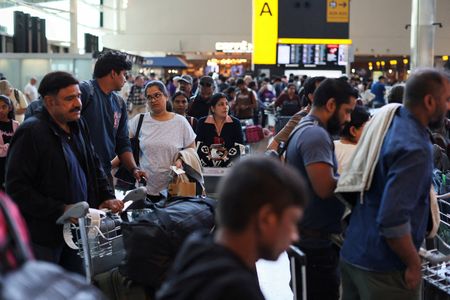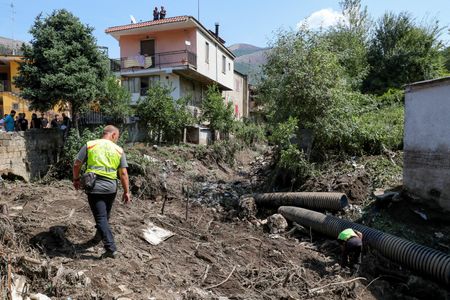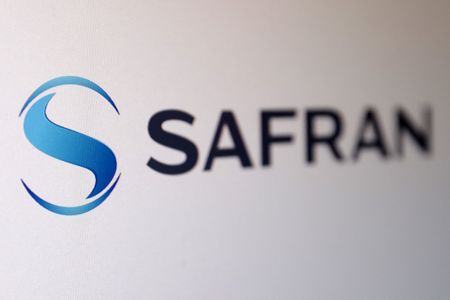By Giuseppe Fonte
ROME (Reuters) – Italy is proving unable to accelerate its spending of European Union COVID-19 recovery funds, with the latest government data showing it has invested roughly half of the money it has secured so far.
By 2026 Rome is due to have received 194.4 billion euros ($209.87 billion) from the EU’s so-called Recovery and Resilience Facility (RRF), but the government is struggling to put the latest windfall to good use due to red tape and administrative delays.
As of December 2024 Rome had spent 63.9 billion euros of the 122 billion of EU funds it had received since Brussels began disbursing the cash in instalments in 2021, EU Affairs Minister Tommaso Foti said in a statement on Thursday.
When including the seventh instalment worth 18.2 billion euros, for which Italy requested payment to EU authorities at the end of last year, the spending rate stood at 45%, unchanged from June last year.
In late 2022, Prime Minister Giorgia Meloni targeted investment of around 108 billion by the end of 2024.
“Around 92% of the entire plan is in the implementation or closure phase,” Foti said in a statement.
Opposition parties asked the government for an urgent report to parliament over the implementation of the plan.
However, Meloni’s office said Italy was first in Europe for total resources received and number of payment requests formalised.
Rome had hoped to see a major economic boost from the EU cash, but the euro zone’s third largest economy has expanded by just 0.7% in each of the last two years, and economists expect a similar rate this year.
Foti said all relevant institutions would make every effort to achieve the objectives needed to unlock the last three instalments worth 54 billion euros.
Italy, which has already revised its recovery plan four times, is also negotiating with Brussels a final overhaul with the aim of replacing or downscaling projects that the government will be unable to complete by the 2026 deadline, with others that could be wrapped up within the allowed timeframe.
Delays affect dozens of projects in areas including the rollout of ultra-fast broadband networks, high-speed train lines and plans to create more affordable childcare.
($1 = 0.9263 euros)
(Editing by Mark Heinrich)









